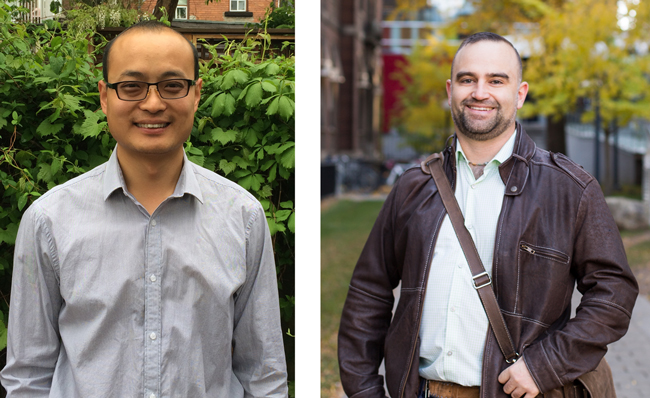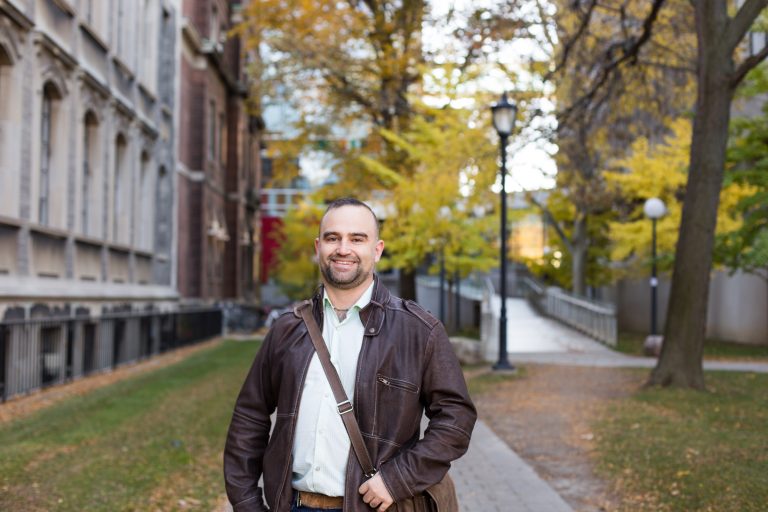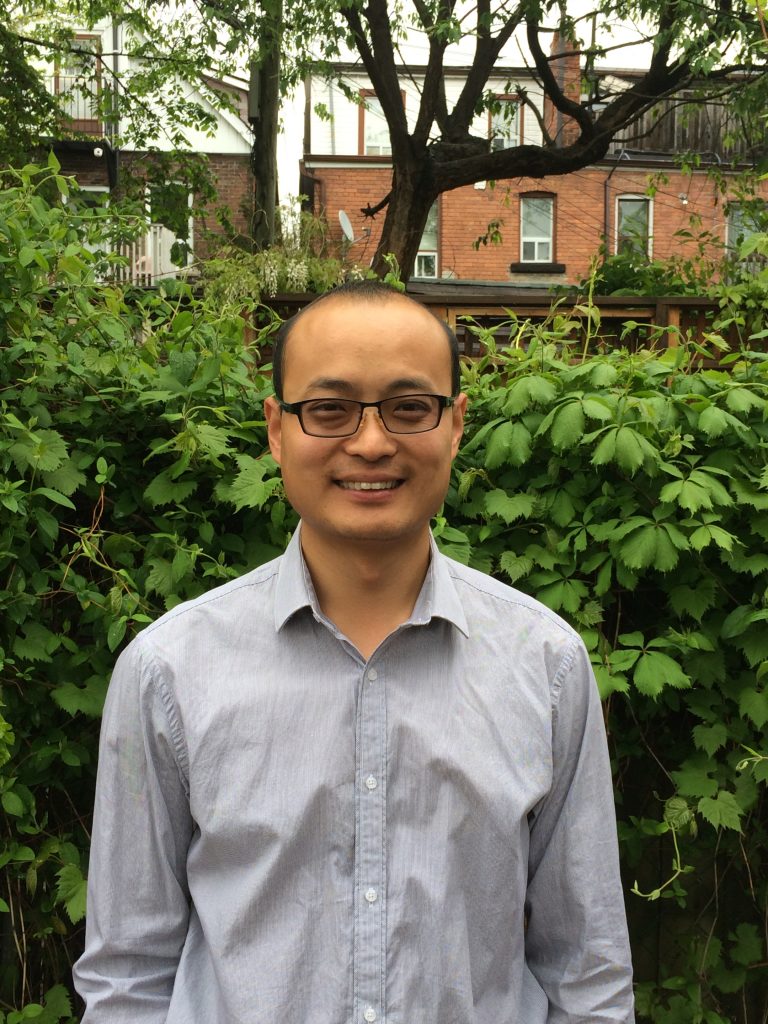
By James Martin, McGill Reporter
The Steinberg Global Health Postdoctoral Fellowship has announced its 2017 cohort. Over the next year, Shaun Cleaver and Wenhua Wang will be tackling, respectively, the impact of social policy on disabled individuals in Zambia and primary health care evaluation in China. Their fellowships begin in September.
Founded in 2015, the Steinberg Global Health Postdoctoral Fellowships support researchers who focus on issues related to global health in low- or middle-income countries or among Aboriginal populations in Canada. Each fellow receives $50,000 in financial support for one year, with the possibility of renewal. The program, which receives applications from around the world, is supported by the Blema and Arnold Steinberg Family Foundation and administered by the Faculty of Medicine’s Global Health Programs.
New fellow Shaun Cleaver comes to McGill from the University of Toronto, where he completed his PhD dissertation on “meanings of disability, and what to do about it,” with a focus on people living in Zambia’s Western Province.

“I’m actually a physiotherapist,” he says, “but through a series of steps I migrated into being a researcher and disability advocate-ally. I team up with disabled people’s organizations (DPOs) and we’re looking at current policies and how those advocacy groups could be more involved in shaping future policies.”
From 2003 to 2011, Cleaver worked on and off as a physical therapist in Haiti. “My patients thought about their bodies, health, and disability differently than the ways I did as a therapist,” he says. “That piqued my interest in getting more involved in research, and in asking ‘How can we approach the profession differently, in partnership with advocacy groups, to meet people’s needs?’”
He is doing his Steinberg Global Health postdoctoral fellowship at the School of Physical and Occupational Therapy (SPOT), under the co-supervision of McGill professor Matthew Hunt and Virginia Bond of the ZAMBART (Zambia AIDS Related Tuberculosis) Project, a research unit at the University of Zambia’s School of Medicine.
For his post-doc research, Cleaver will return to Mongu and Kalabo, the Zambian districts where he did his PhD research. He will interview persons with disabilities, and members of their households, about whether Zambia’s new social welfare policy, the Social Cash Transfer Scheme (SCTS), is changing their perceptions of well-being and inclusion. (SCTS targets households living in extreme poverty; although people with disabilities are given preference, not all SCTS beneficiaries are disabled.) In parallel with the interviews, he will interact with policymakers at Zambia’s Ministry of Community Development to explore how to increase the involvement of persons with disabilities in the policy process.
Wenhua Wang is a postdoctoral fellow in the Department of Family Medicine, under the supervision of Jeannie Haggerty. Wang holds a Bachelor of Medicine and a PhD in Social Medicine and Health Management from the Shandong University in China.

Wang’s focus is on primary health care (PHC), which aims to make essential care accessible to all individuals and families in a community. For his doctoral dissertation, he examined the relationships between patient experience and satisfaction in Tibet’s Western- and traditional-medicine hospitals, under the auspices of the AusAID-funded Tibet Health Capacity Building Program. He also served as a consultant to the China Medical Board for its first Tibet Household Health Survey, conducted in 2015, and was a faculty lecturer at Wuhan University.
For his postdoctoral research, Wang is looking at PHC in China, which in 2009 began a national health reform to build a PHC-based health system.
“We want to develop an evaluation framework to guide and measure primary health care reform,” he says. While there exist instruments for evaluating the user experience in a Western industrialized context, it is unclear whether those tools are applicable to China. Wang wants to develop tools that accurately reflect Asian values of health and healthcare.
“The main objective of China’s reform is to create a people-centered primary health care system,” he says, “but there is no clear performance information about the current situation. The next step may be to develop indicators to measure primary health care reform’s progress. Our findings will provide policy-evaluators and primary care researchers with information to guide the selection of instruments that evaluate primary care from the user perspective in China—and can maybe be shared and replicated in other countries in Asia.”
In addition to the financial support, the Steinberg Global Health Postdoctoral Fellowships will offer Cleaver and Wang additional training and networking opportunities, such as participation in workshops on grant application, and opportunities to teach in the global health courses offered at McGill.
The program’s inaugural fellows are moving on to exciting opportunities after two years at McGill. Vincent Duclos will be starting as an Assistant Professor at Drexel University in Philadelphia, and Lena Shah will combine academic research with advisory roles at the World Health Organization and the BMC Health Services Research journal. Both of the program’s 2016 fellows, José Ignacio Nazif-Muños and Toyin Togun, have been renewed for a second year.
August 30, 2017
